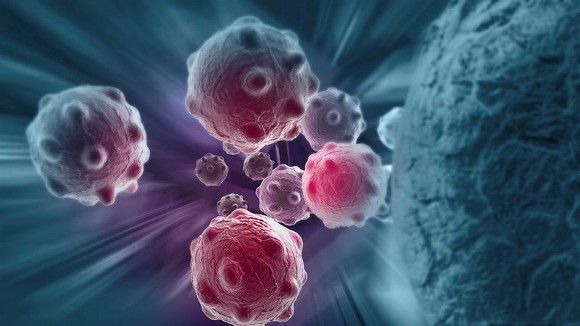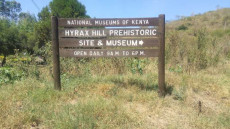- Wrong ideas about cancer have led to needless worries and hindered good prevention and treatment decisions.
Cancer is a disease in which there is uncontrolled growth and spread of abnormal cells. The disease usually starts in one part of the body, and if not detected and treated on time, it spreads to other parts of the body.
Cancer cells are different from benign cells that remain localised. Cancer cells spread through a process called Metastasis, raising a serious health concern.
Cancer is a life-threatening disease because of its uncertainties, like many never get to know when it develops, and sometimes it lacks clear symptoms, hence making it hard to detect early enough.
The disease also raises uncertainties about whether it can be cured, its aggressiveness, and how its harsh treatment will generally affect the life of the patient.
Despite all this, wrong ideas about the disease have led to needless worries and hindered good prevention and treatment decisions.
Read More
Below is a discussion of some common cancer myths and misconceptions that need debunking:
1. Cancer is a death sentence: this is wrong. Cancer is curable if diagnosed and treated on time. In developed countries like the US, the likelihood of dying from cancer has gone down over time. This is due to medical advancements in terms of diagnosis and treatment.
The period of survival for a cancer patient after diagnosis and whether the patient will be cured or die from the disease depends on a number of factors like the rate at which the cancer is growing, the extent of spread of the disease in the patient's body, the availability of effective treatment, the patient's overall health among others.
Therefore, cancer is not a fatal disease; many have been cured from it.
2. Eating sugar worsens cancer: This is not true. There is no enough evidence to show that eating sugar worsens cancer, or that if a cancer patient stops eating sugar, the cancer will shrink or disappear. Instead, the available research show that cancer cells consume more glucose or sugar as compared to normal cells.
However, high sugar consumption has been linked to obesity and excess weight gain, which are associated with higher risks of developing several types of cancers.
3. Cancer is contagious: No, cancer is not contagious. The only situation in which a cancer patient can spread to another person is during an organ or tissue transplant. For instance, a person receiving an organ or tissue from a donor who had cancer before is considered at risk of getting transplant-related cancer later.
Even in such a situation, the risk is extremely low. Doctors, in most cases, will avoid using organs or tissues from donors who have been sick with cancer before.
Unlike viruses and bacteria that spread from one person to another, cancer cannot spread from one person to another.
4. Cancer surgery/tumour biopsy leads to cancer spreading in the body: the probability of surgery leading to the spread of cancer to the rest of the body is very low. Surgeons use specialised methods involving a lot of steps to avoid cancer cells from spreading during biopsies or surgery to remove tumours.
For instance, when they are forced to remove tissue from several areas of the body, they use different surgical tools for every area. Therefore, cancer surgeries or tumour biopsies do not lead to the spread of cancer in other parts of the body.
5. One's attitude determines one's risk of getting or surviving cancer: it is normal for a cancer patient to feel angry, sad, overwhelmed, discouraged, etc. A cancer patient with a positive attitude is likely to maintain social connections and stay active in physical and emotional activities. This will consequently help them cope with the disease.
Therefore, there is no convincing evidence that connects a person's attitude to their risk of developing, surviving or dying from cancer.
6. Cancer gets worse if it is exposed to air: this is not true. Exposure to air has no connection with the rate at which tumours grow or the rate at which cancer spreads to other parts of the body.
7. Cell phones cause cancer: cell phones do not cause cancer. Cancer is caused by genetic mutations. Cell phones only emit a type of low-frequency energy that cannot damage genes.
8. Power lines cause cancer: This is not true. Both electric and magnetic energy are emitted by powerlines. The emission of electric energy by a power line is safe. It is shielded and weakened by walls and other objects. The magnetic energy, on the other hand, is of a low-frequency form. This radiation does not damage genes.
9. Herbal products cure cancer: herbal products do not cure cancer, but they may help patients cope with the side effects of cancer treatment. There is no enough scientific study to prove any herb to be effective in treating cancer. In fact, some herbal products are harmful when taken during cancer treatment because they interfere with the process of treatment.
If a cancer patient wants to explore alternative or complementary therapies like herbal medication, it is advisable to share with their doctors so that they can be guided appropriately.
10. One is likely to get cancer if they come from a family with a cancer history: This is not always the case. The cause of cancer is the harmful mutations in genes. Although there may be cases of harmful mutations being passed from parent to children, the percentage is very low, (5%).
A family with an inherited cancer-causing mutation will have several members of the family having the same cancer. This is called familial or hereditary cancer.
95% of cancers develop as a result of mutations that develop during an individual's lifetime due to ageing, exposure to toxic environmental factors like tobacco, smoke and radiation. This type of cancer is called non-hereditary or spontaneous cancer.
11.One is not at risk of cancer if no one in their family has had cancer: this is not true. Research shows that 39% of men and women have been diagnosed with cancer at some point in life.
Most cancers come as a result of genetic changes occurring during a person's lifetime due to ageing or exposure to environmental factors.
Lifestyle also plays a part. The food one eats, the amounts of food eaten, exercising habits, etc., all influence one's risk of developing cancer.
12. Deodorants cause cancer: this myth is commonly associated with breast cancer. However, there don't exist adequate research to link the chemicals found in deodorants with changes in breast tissue.
Therefore, if you are a cancer patient or you are nursing a cancer patient, I hope this information will help you in coping with the disease and nursing the patient effectively.










